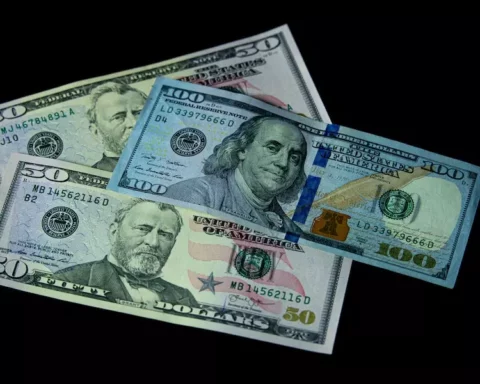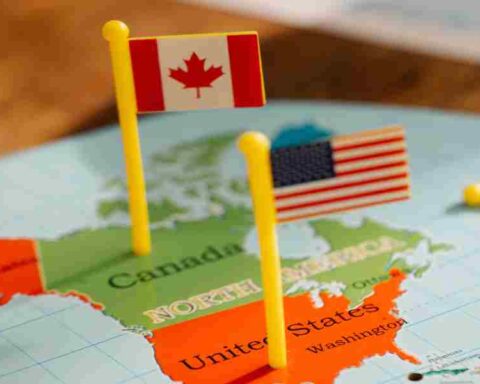Search
About Us
Follow
Signup to Newsletter
Get our regular posts notification, just subscribe our newsletter and keep reading.

Why Did The Colonists Fight The British? Check Out The Reasons

Have you ever stumbled on a question like, why did the colonists fight the British? History tells us the colonists had several reasons not to fight, but they did.
The colonists were well-protected by the British government. The British invested a fortune in security and ensured the French forces did not intimidate the colonists. Yet, the colonists rebelled.
This post will address the reasons the colonists fought the British. Keep reading for more information.
Why The Colonists Fought The British
Here are reasons the colonists decided it was time for the British to leave their lands.
1: The British government’s Quartering Act:
The British government was not considering their laws. They passed laws at will, not minding the impact they would have on the colonists.
The colonists were pushed to the wall, and they had to react. What transpired? The British government passed the Quartering Act, which became a burden to the colonists.
What did the Quartering Act entail? The Act required colonists to provide accommodation for the British soldiers at their own expense.
Soldiers resided in public buildings and inns, yet the colonists provided for their needs. Unfortunately, the British government didn’t stop there. They passed another Quartering Act in 1766, which placed more burdens on the colonists.
As if the second Quartering Act wasn’t enough, the British government passed a third one, but this time in 1776. The burden became too much for the colonists, so they had to revolt.
The colonists considered the Quartering Act another form of taxation, as they were already tired of the numerous taxes the British government was collecting from them.
The British government tested the colonists’ tolerance to the limit. They expected them to purchase public properties to house British soldiers, something the colonists didn’t find funny.
2: Increased taxes and antagonizing laws:
The British Monarchy started well but skidded off the right path. They allowed the colonists to pay low taxes. Unfortunately, the people of the American Colonies didn’t have the same rights as the English.
The colonists were treated like nobodies. They also didn’t have a voice and were treated as enslaved people in their own land.
They were not bound to chains or made to work in plantations. But they didn’t have a place in the crown. They had no voice and couldn’t influence things happening in their land.
Gradually, the British government started showing its true colors. They started showing their intentions, which included profiting from the colonies. This greed led them to increase the taxes, angering the colonists.
The people of the American colonies didn’t like how the British government increased their taxes. Besides, the British weren’t treating them as a people contributing large profits into its coffers.
The increased taxes raised numerous questions, which gave the colonists reasons to work together to chase the British away from their land. The question was, if we are paying high taxes, why don’t we have equal rights to the English?
The increased taxes under King George III made the colonists think the Monarchy treated them like a conquered territory. Of course, the colonists started rebelling.
The rebellion led to a full-blown war between the British and the colonists. And this time, the colonists were ready to do anything to gain independence and not equal rights.
3: The economy was in the hands of the British:
The American colonists were unhappy with the British, following how they took over and handled their economy. The British took greater control of the American economy, which didn’t go down well with the colonists.
The British also made another blonder. They prevented the American colonists from trading with France, including the Colony of New France and Spain.
This decision by the British government surprised the American colonists. Thus, they started questioning the British government’s right to make economic decisions on their behalf.
4: The colonists were made to bear the financial burden of the French and Indian War:
The French and Indian War, in which the British government got involved, was considered a waste by the colonists. The war was costly in terms of money, men, and weapons.
The British didn’t anticipate the losses suffered in the French and Indian War, which plunged the government into heavy debt. As if this wasn’t enough, the British wanted the colonists to pay for much of the cost incurred.
The French and Indian War was part of the seven-year war across Europe.
5: The love for Independence:
The colonists felt independent of the British government and strongly desired self-governance. They wanted the freedom to control their economy and foster a colony where everyone had equal rights.
The colonists grew tired of how the British Empire was treating them. They longed for the freedom to trade with whomever they desired rather than being forced to purchase British goods.
They deemed the British government’s rule imperial, and as the day went by, they grew tired of how things were being done. The British misrule made the people from different colonies develop a common bond they hadn’t had before. It also made their hatred for the British government to increase.
6: Self-governance was a common idea in that period:
The English Civil War started in 1642 and ended in 1651. Furthermore, in the wake of the 1688 Glorious Revolution, the British passed the Bill of Rights in 1689. What did the bill entail?
The bill showed everything that was wrong with the British government’s rule. It stated that the British Parliament was the highest authority.
On the other hand, the people of the American colonies did things differently. They were already used to governing themselves. Thus, British rule didn’t suit them. It was not how they were configured to operate as a people.
The American Revolutionary War started when the British government tried to dismiss the colonists’ independence. How did they do this? They started exercising more control over the people’s affairs and demanded they pay more taxes.
They refused the Americans from trading with the French and Spanish people, forcing them to purchase only British goods. Unfortunately, the American people disagreed with the British’ suggested way of living. Saw what the British government was doing as an insult and disregard for their independence.
One good thing that happened to the colonists was that they were already organized even before the British people came. They had colonial assemblies, which were similar to legislatures.
So, when the British government started misbehaving, it was easier for the colonist to imagine having an American Government in place rather than a British one.
After the Americans fought the Revolutionary War and won, they saw the need to establish a Federal Government, and they did. The government was then established to unite the different states and protect them.
Conclusion
So, why did the colonists fight the British? They were well-protected against the French forces. So, why did they rebel and fight to dislodge the British? There are diverse reasons the colonists wanted the British government off their land. The reasons include high taxes, the quest for independence, a dwindling economy, and segregation.
The colonists saw that the British government didn’t bother about them and that they didn’t have equal rights as the English people. The British government prevented the colonists from trading with the French and Spanish people, a move they didn’t like.
Another reason was their interest in self-rule. They wanted to be in charge of their only territory rather than leave it in the hands of strangers. Unjust laws in the land forced the colonists to unite and rebel against the British invaders.
Share Article
Susan Tapia is an ambitious, savvy news writer with a vibrant personality and an eye for detail. She is highly experienced in crafting compelling stories and dedicated to seeking out the truth. With her inquisitive nature, she delves deep into every subject she touches, uncovering unexpected facts that help her engage her readers. Susan has an unbridled passion for writing, and she strives to inspire others through her work. She confidently shares her thought-provoking ideas with enthusiasm and candor, making sure the world can see the truth no matter how uncomfortable it may be. Simply put, Susan Tapia is a trailblazer in the journalism industry who never fails to deliver her readers riveting stories they won't soon forget.



























